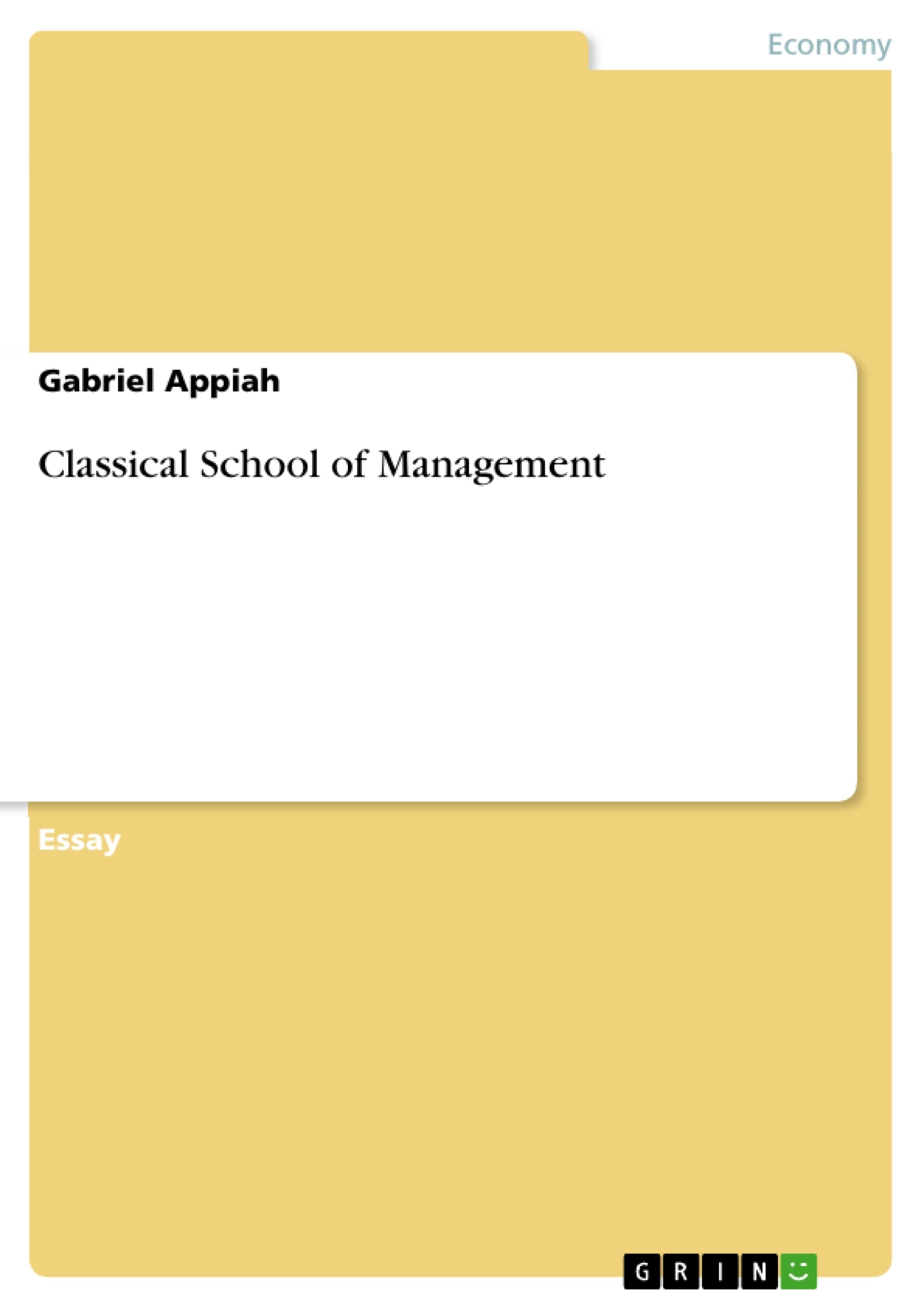The classical principle (school) of management has evolved for a number of years. The main assumption underpinning this school of thought is the fact that people are rational and as such are motivated by their economic aspirations. The classical viewpoint of management can be divided into three parts: Scientific Management, Administrative School and Bureaucratic Management. The proponents of scientific management believe that scientific method can be used to define the “one best way” for a job to be done. The main proponents were Frank and Lillian Gilbreth, Frederick Winslow Taylor and Henry L. Gantt. The proponents of the Administrative School (Bureaucratic Management) were Max Weber and Henri Fayol.
Over the years this school of management has contributed immensely in ensuring effective management of organization. some of the contribution are: I. Highlights the need for a scientific approach to management. II. Points out that work methods often can be improved through study. III. Identifies a number of important principles that are useful in running organization efficiently. But recently the assumption underpinning this school of thought has be recognized as irrelevant to today's organization- for instance the classical theorists conception of organizations as a mechanical devices to achieve organization's goals and objectives are contrary to the conception of today’s organizations.
Classical School of Management
INTRODUCTION
There is no one acceptable definition of management and hence many scholars like Henri Fayol, F.W. Taylor, E.F.L. Brech and others have defined management based on their own understanding of the concept. For instance, Mary Parker Follet defines management as “Getting things done through other people”. This definition calls attention to the fundamental difference between a manager and other personnel of an organization.
The concept of management has seen many evolutions in the direction of theorizing to underpin the concept. Among some of these schools of management thought or theories are the classical or traditional approach, the human relations school, the system approach and the contingency approach.
CLASSICAL PRINCIPLE (SCHOOL) OF MANAGEMENT
Frequently asked questions
What is the Classical School of Management?
The Classical School of Management is a management theory based on the assumption that people are rational and motivated by economic aspirations. It is divided into three parts: Scientific Management, Administrative School, and Bureaucratic Management.
What is Scientific Management?
Scientific Management, a component of the Classical School, emphasizes using the scientific method to determine the "one best way" to perform a job. Key proponents include Frank and Lillian Gilbreth, Frederick Winslow Taylor, and Henry L. Gantt.
What is the Administrative School of Management (Bureaucratic Management)?
The Administrative School (Bureaucratic Management), another component of the Classical School, focuses on the overall administration and structure of organizations. Max Weber and Henri Fayol are considered key figures.
What were Max Weber's key beliefs about management?
Max Weber advocated for organizations to be managed impersonally, with a formal organizational structure and adherence to specific rules.
What did Henri Fayol contribute to management theory?
Henri Fayol developed 14 principles of management based on his experiences, offering general guidelines for supervisors on organizing departments and managing staff.
Who are some of the key figures associated with the Classical School of Management?
Key figures associated with the Classical School of Management include Frederick Winslow Taylor, Frank and Lillian Gilbreth, Henry L. Gantt, Max Weber, and Henri Fayol.
What is the difference between a manager and other personnel in an organization, according to Mary Parker Follett?
Mary Parker Follett defined management as "Getting things done through other people," highlighting the manager's role in coordinating the efforts of others.
- Quote paper
- Gabriel Appiah (Author), 2013, Classical School of Management, Munich, GRIN Verlag, https://www.grin.com/document/213038




